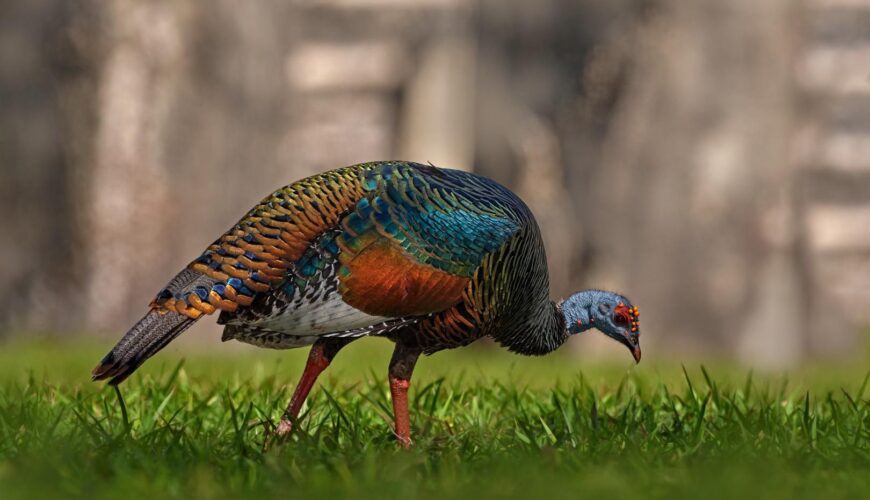Tactics
How to Judge Black Bears
November 10, 2025 •Brad Fenson
April 4, 2023
For those who love gamebirds, gobblers are some of the most beautiful spring and fall-time harvests. We’re all familiar with turkey breeds in the U.S., but they have a vibrant cousin down south—M. ocellata, the ocellated turkey. This unique bird, found only in the Yucatan Peninsula of Mexico and Central America, has some key (often striking) differences from its American relatives. Bearing a beautiful blue head, bright orange nodules, and feathers not too far off from a peacock’s, this World Slam checkmark is a sight to behold. With our guide, you can get a head start on your next Ocellated Turkey hunt and work towards that elusive World Slam record.

An eastern wild turkey hunting background.
Ocellated Turkey prefer dense tropical forests, with plenty of cover and bountiful food. Indigenous to the Yucatan Peninsula, which encompasses a few Mexican states, the northern half of Belize, and Guatemala’s northern Petén region, you’ll likely need a guide or outfitter to tag this bird successfully. Coordinated trips start at $2,600-$3,600 and include essentials like shelter, transport, and food. Additionally, many will conveniently transport you to a professionally pre-scouted section of the jungle, ready for hunting. With guides doing the legwork, all you have to worry about is mastering the technique behind this turkey hunt.
The ocellated turkey’s breeding rituals start in March, just like its northern cousin, with the males extravagantly displaying themselves to catch the attention of nearby hens. Unlike the toms we’re used to, ocellated turkey males famously don’t gobble and the hens don’t even yelp; instead, the males make a low drumming noise along with a “honk” that’s been said to sound like a barnyard goose imitating a turkey, while the hens emit a soft purr-like noise.
This means that calling an ocellated turkey isn’t as effective as one might imagine, and southern turkey hunters should alternatively employ a spot and stalk tactic akin to deer hunting. Keep quiet when looking for ocellated turkey, and closely monitor the birds’ routines. Stealth and precision are imperative. During the spring, males will exhibit an array of field displays to assert dominance and claim mates — the key here is to be more inconspicuous than them. With patience, you can ambush one at the perfect moment.
Whether you add this beautiful tom to your collection soon or in the distant future, we hope you feel a little more prepared for this enjoyable jungle journey.
